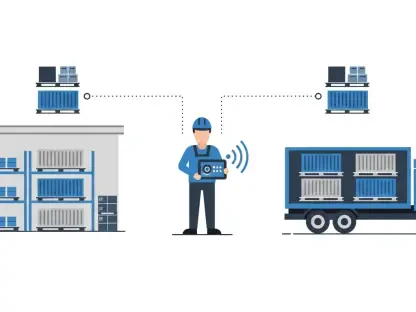The logistics challenges faced by e-commerce companies today are increasingly complex, ranging from managing diverse product catalogs to ensuring timely deliveries. As online shopping continues its rapid growth, the need for efficient, reliable, and scalable logistics solutions has never been more imperative. ShipBob, a leading global supply chain and fulfillment platform, stands out by addressing these issues with innovative tech-driven solutions that enhance the customer experience while reducing operational headaches. In this article, Dhruv Saxena, the CEO and co-founder of ShipBob, shares how the company navigates logistics hurdles while minimizing costs and streamlining operations.
Overview of Primary Industries Served by ShipBob
ShipBob operates as a comprehensive supply chain and omni-fulfillment platform tailored specifically for e-commerce merchants. These merchants span a variety of sectors, including health and wellness, beauty, apparel, and home goods. ShipBob’s flexibility is reflected in its offerings—brands can outsource their entire fulfillment operations, leverage in-house capabilities via ShipBob’s proprietary warehouse management system (WMS), or adopt a hybrid model combining both strategies. This adaptability ensures that industry-specific needs are efficiently met. For instance, beauty brands benefit from lot tracking, vital for managing product batches and ensuring compliance with health regulations. Apparel brands, on the other hand, benefit from the ability to manage complex product catalogs and SKU variations. ShipBob’s versatile approach helps brands maintain operational efficiency irrespective of their specific sector challenges.
Moreover, the platform’s adaptability is vital for managing the various fulfillment demands of different industries. For example, health and wellness merchants often deal with products that have specific storage and shipping requirements. ShipBob’s capability to customize its services to meet these needs ensures that products are stored, managed, and shipped not only efficiently but also in compliance with regulatory standards. This level of customization is crucial for brands that require precision and adherence to industry-specific guidelines. Whether it’s handling fragile items for home goods brands or ensuring the right climate control for sensitive health products, ShipBob’s comprehensive approach addresses the unique challenges faced by diverse e-commerce sectors.
Key Solutions and Approaches to Logistics
Dhruv Saxena emphasizes that partnering with a single, tech-driven fulfillment provider is crucial for reducing the complexity inherent in a fragmented supply chain. By consolidating logistics operations under one roof, brands can achieve a seamless flow of goods from production to delivery. This approach not only simplifies operations but also provides a complete, accurate, and real-time view of inventory and order status. This real-time visibility is critical for making informed decisions, adjusting to demand fluctuations, and avoiding stockouts or overstock situations that can be costly.
ShipBob positions itself as more than just a logistics provider. Many clients view the company as an “outsourced chief supply chain officer,” thanks to its strategic approach in distributing inventory across multiple fulfillment centers. This distribution model is particularly effective in mitigating risks associated with supply chain disruptions, such as severe weather conditions or pandemic-induced shutdowns, ensuring that order fulfillment remains uninterrupted. By strategically placing inventory in key locations, ShipBob can offer faster shipping times and improved delivery performance, which are significant competitive advantages in the e-commerce landscape.
In addition, ShipBob leverages advanced technology to automate and optimize many aspects of the logistics process. Its proprietary warehouse management system (WMS) allows for efficient handling of inventory, streamlined order processing, and precise tracking of shipments. This technological edge not only reduces operational errors but also enhances overall efficiency. For e-commerce merchants, having a tech-savvy partner like ShipBob means they can focus more on growing their business rather than getting bogged down by logistics issues. The company’s tech-driven fulfillment solutions ensure that the logistics backbone of the businesses it serves is robust, reliable, and scalable.
Sustainability Initiatives
ShipBob is committed to sustainability, implementing several key initiatives to reduce its environmental footprint. One of the primary strategies involves encouraging merchants to distribute inventory across ShipBob’s global network of over 50 fulfillment centers. This practice minimizes the need for carbon-intensive air transit, effectively reducing carbon emissions. By positioning products closer to end customers, ShipBob not only enhances delivery speed but also lowers the environmental impact associated with long-haul shipping. The increased efficiency in last-mile delivery further contributes to a greener supply chain.
The Inventory Placement Program (IPP) further enhances sustainability by automating inventory distribution within the U.S. network. This automation optimizes fulfillment efficiency, leading to fewer shipments and reduced overall environmental impact. The IPP strategically places inventory closer to high-demand areas, minimizing the distance products need to travel and thus lowering the carbon footprint. In addition, ShipBob promotes eco-friendly practices such as using sustainable custom packaging, reducing paper usage by disabling packing slips, and incorporating eco-friendly padding materials in shipments.
Moreover, ShipBob’s dedication to sustainability reflects a broader commitment to corporate responsibility and environmental stewardship. The company’s initiatives are designed not only to benefit immediate operational efficiency but also to contribute to long-term environmental goals. For instance, the use of sustainable custom packaging materials helps reduce waste and the demand for new raw materials. By encouraging practices that have a reduced environmental impact, ShipBob is leading by example in an industry that often faces scrutiny over its carbon footprint. The company’s continuous efforts in promoting sustainable logistics solutions highlight its role as a forward-thinking leader in supply chain management.
Industry-Wide Logistics Challenges
The logistics industry is currently grappling with the challenge of minimizing costs while maintaining high fulfillment standards—this is a significant concern for merchants. ShipBob dedicates substantial efforts to reduce fulfillment costs through innovation and efficiency. The IPP not only lowers shipping expenses but also enhances the customer experience by ensuring faster delivery times and greater reliability. Efficient inventory management and strategic placement also contribute to reduced shipping costs, making logistics more affordable for e-commerce brands without compromising on quality.
Managing global supply chain operations entails dealing with a variety of unpredictable factors, from geopolitical issues to natural disasters. ShipBob’s strategic positioning and advanced logistics technologies enable it to anticipate and quickly respond to these uncertainties, thereby maintaining a robust and resilient supply chain for its clients. Through data analytics and predictive modeling, ShipBob can foresee potential disruptions and implement contingency plans to mitigate their impact. This proactive approach ensures that clients experience minimal downtime and can continue to meet customer expectations even during crises.
In addition to these challenges, the industry is also facing increasing pressure to meet consumer demands for speed and convenience. E-commerce customers expect not only quick delivery but also reliability and transparency throughout the shipping process. ShipBob addresses these expectations by leveraging its technology-driven solutions to provide real-time tracking and efficient order fulfillment. By optimizing the entire logistics process, from warehouse management to last-mile delivery, the company ensures that customers receive their orders promptly and accurately. This commitment to excellence helps e-commerce brands build trust and loyalty among their customer base.
Optimism and Future Outlook
E-commerce companies are grappling with increasingly intricate logistics challenges, from handling diverse product catalogs to ensuring on-time deliveries. As online shopping booms, the demand for efficient, reliable, and scalable logistics solutions has reached an all-time high. One company making significant strides in this field is ShipBob, a leading global supply chain and fulfillment platform. ShipBob tackles these issues head-on with innovative, tech-driven solutions designed to improve the customer experience while alleviating operational burdens. In this piece, Dhruv Saxena, the CEO and co-founder of ShipBob, discusses how the company overcomes logistics obstacles, reduces costs, and streamlines processes to help e-commerce businesses thrive.
ShipBob leverages advanced technology to offer seamless logistics, integrating with various e-commerce platforms to provide real-time inventory management, order processing, and shipping analytics. This comprehensive approach enables businesses to focus on growth rather than logistical concerns. According to Saxena, the key to ShipBob’s success lies in its ability to adapt quickly to the ever-changing e-commerce landscape, ensuring that companies of all sizes can meet their customers’ expectations without breaking the bank. By optimizing supply chain management, ShipBob not only reduces expenses but also shortens delivery times, helping businesses maintain a competitive edge.









